By now, you’ve heard just how magical Nicaragua is. But before booking your plane ticket, you’re pondering the one question any sensible traveler would: Is it safe to travel to Nicaragua? (And if, like me, you’re a solo female traveler, then your concern is likely doubled!)
Just like many other countries in Latin America, Nicaragua is “dangerous.” Statistically speaking, the crime rate in Nicaragua is high. Violent crimes, like sexual assault and armed robbery, are not uncommon. So, of course, it’s true that you could easily find yourself in a less-than-desirable situation.
But don’t let the numbers and travel advisories scare you off.

After living in Nicaragua (and falling in love with the country), I can tell you that there’s a big difference between what the numbers say Nicaragua is like, and how it really is – when you visit as a tourist.
In short, traveling to Nicaragua can be safe*, but only if you prepare yourself and get informed.
In this post, I’m going to break down everything you need to know about Nicaragua safety – whether you’re a solo female traveler or not.
Is Traveling to Nicaragua Safe?
Boasting wild jungles, Caribbean islands, two coastlines, many volcanoes and lakes, and authentic culture, intrepid travelers love Nicaragua. Compared to Costa Rica and Belize, Nicaragua is one of Central America’s less-developed countries. Which, on one hand, means lush, untrodden landscapes and countless other reasons to visit Nicaragua. But on the other, increased possibilities of danger…
If you visit the U.S. Department of State website, you may be ready to cancel your visit to Central America before you even book it. However, if you’re an experienced traveler, if you’re familiar with life in urban areas, and if you have common sense, you will (most likely) enjoy safe travel through Nicaragua.
Remember, there is no such thing as being totally safe. No matter where you are in the world! But there are ways to greatly mitigate your risk of all kinds of danger.

Stats & Facts on Nicaragua Travel Safety
- The U.S. Department of State lists Nicaragua as an orange, “Level 3” advisory, suggesting that you should “reconsider travel” and “exercise increased caution in Nicaragua due to crime.”
- The Statista Research Department states “the world’s most dangerous cities are located in Latin America”, due to gang violence from drug trafficking.
- In urban cities like Managua and San Juan del Sur, violent crime is more common.
- Nicaragua often has poor road conditions and unsafe driving practices.
- Nicaragua has 19 active volcanoes, miles of un-lifeguarded beaches, and no cell phone service in many areas with unpatrolled hiking trails.
- National disasters, civil strife, poor economy, and general lack of resources have greatly affected the lives of kind-hearted Nicaraguan people for many years.
- Much of the water in Nicaragua is not safe for drinking.
- Nicaragua has 15 species of poisonous snakes, many poisonous frogs, and plenty of other dangerous wildlife on land and water.
Maintaining safety in Nicaragua, and anywhere, requires awareness of your surroundings, common sense, and some planning ahead.
Now that the facts are out of the way, let’s dive deeper into answering your question: Is Nicaragua safe to travel to?
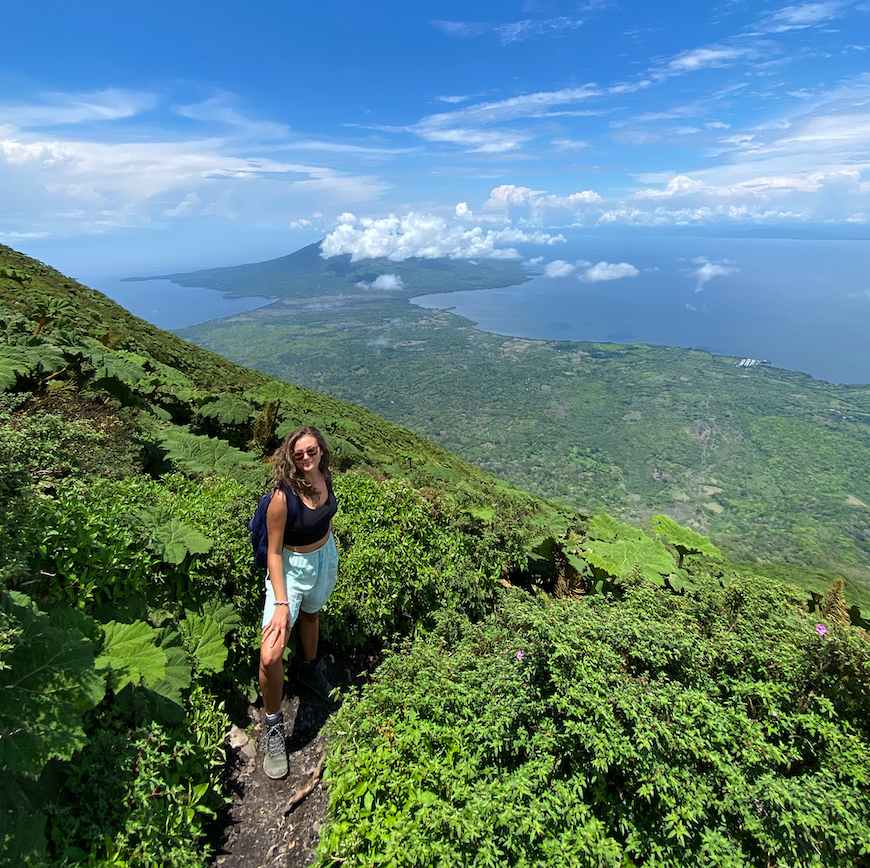
My Experience in Nicaragua
After living in Nicaragua for many months (in tourist areas like Laguna de Apoyo and Granada), I can sum up my thoughts about Nicaragua travel safety into a few sentences:
My safety is my top priority. I remain vigilant and familiarize myself with local laws. I watch my footing in nature – beaches and jungle alike. (Stepping on a scorpion again is not on my wishlist.) I do my best to play it safe when it comes to adrenaline-inducing activities like surfing, and limit my time on motorcycles. I always hold my bags close to me in markets or cities such as San Juan del Sur, and don’t share conversations with just anyone.
With the above safety practices – and maybe a little luck, too – I have not been a victim of violent crime while in Nicaragua, or Central America for that matter. I feel more vulnerable to violent crime in the United States than I do living in Nicaragua.
Petty crime, however, is rampant, due to desperation and lack of resources for many people. If you leave a pair of Havaiana flip flops outside, for example, they likely won’t be there in the morning.
General Safety Tips for Nicaragua Travel
#1. Learn to Speak Spanish
This shows respect to locals, and increases your chances of positive experiences. You’ll be able to avoid scams, getting lost, or saying something totally offensive to the wrong person!
#2. Be Mindful of Your Public Presence
There are some easy ways to lower your exposure to violent crime: don’t go out at night; use the buddy system; travel during daylight hours only; don’t flash expensive goods; don’t wear overly revealing clothing; and obey local laws.
Basically, use common sense. Be a low-profile, respectful tourist and you’ll likely be fine.
#3 Stay Out of Politics
If you’re going to speak about political ongoings and the Nicaraguan government, then speak well of them. A better idea would be to avoid getting involved in, or discussing, politics at all. You should also stay away from political protests and other demonstrations.
#4. Respect Mother Nature and Wildlife
There isn’t a place in the world that’s completely safe when Mother Nature strikes. Nicaragua is prone to natural disasters like earthquakes, hurricanes, and tsunamis – which have devastated the lives of many locals. Know common local practice for emergencies.
Do research about the land you’re on, and the plants and animals you could encounter. Wear shoes in nature to avoid stepping on a dangerous (and equally as scared) creature. Hike with friends or reputable tour guides so you don’t get lost or injured and stranded.
Find a non-toxic mosquito repellant to mitigate disease. If you have a nasty wound or bite, go to urgent care.
By the oceans, always be mindful of riptides and swells – no lifeguards here!
#5. Choose Your Food & Drinks Wisely
Every time you eat, there’s always a risk of food poisoning, but if you choose wisely, you’re sure to enjoy some amazing street food in Nicaragua. Here are some essential food safety tips.
- While in Nicaragua, only drink bottled water. Make sure to double-check that the water and ice you drink in restaurants is made from filtered, bottled water.
- It’s a great idea to get a GRAYL GeoPress Filter Water Bottle that filters out all waterborne pathogens (virus, bacteria, protozoan cysts), pesticides, chemicals, heavy metals, and microplastics. That way, in a pinch, you can drink whatever water you can find!
- Always choose restaurants where plenty of other people are dining, this shows that ingredients are fresh (high turnover) and potentially a clean kitchen… And good food!
- Be sure to maintain electrolyte balance and eat lots of immune-boosting foods such as fruits and veggies, ginger, and turmeric.
- Fresh, uncooked veggies (like lettuces) and other produce that don’t have peels pose higher risk because you don’t know if they’ve been properly cleaned.
- Taking a daily probiotic is a good idea to keep your gut flora happy. (These shelf-stable probiotics are perfect to travel with.)
Check out this must-read article for more food safety tips: How to Keep a Happy Tummy While Traveling in Developing Countries
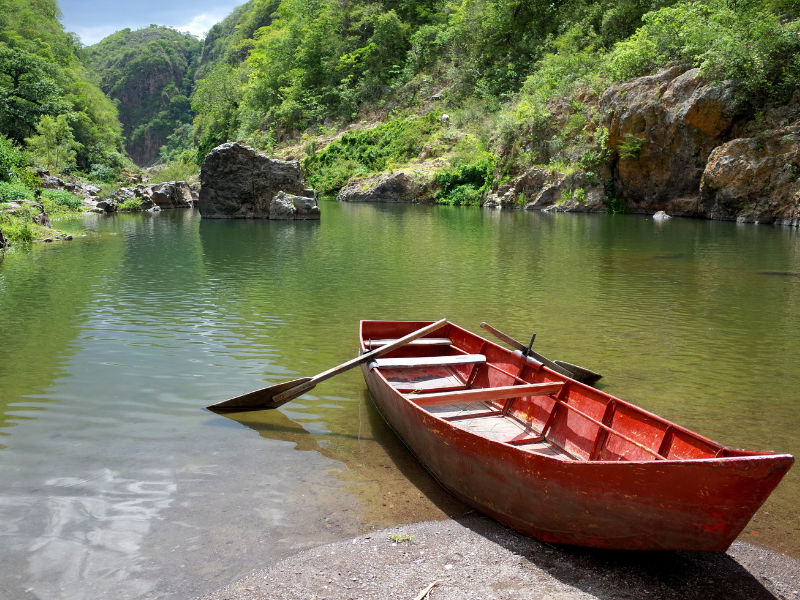
#6. Bring a Personal First-Aid Kit
When you travel in Central America, it’s a good idea to be prepared for whatever comes your way. One of the simplest, but most important things you can do? Pack a personal health and safety kit!
Some things you should pack include:
- Vitamins for your specific needs (liposomal vitamin C, vitamin D, and zinc are always a good idea!)
- Feminine hygiene products (buying a menstrual cup, like the DivaCup, is amazing because you don’t have to carry around millions of tampons; plus, with no waste or no nasty chemicals, the DivaCup is better for your health and the environment.)
- Antihistamines (allergy pills for general allergens and/or anti-itch cream for bug bites) are another must
- Bandaids (of all shapes/sizes), of course!
- Antibiotic ointment, like Neosporin
- Shelf-stable probiotics, to keep your gut flora happy and avoid traveler’s diarrhea
- Good tweezers, for stings, splinters, and more
- Natural bug spray, to keep mosquitoes (and the diseases they carry) away
- Natural, reef-safe sunscreen, better for you, better for the environment
- GRAYL GeoPress Purifying Water Bottle, so you can safely drink any water in a pinch
#7. Keep Track of Your Personal Belongings
Especially in bus stations, rural areas, hostels, and major urban areas like San Juan del Sur or Managua, keep your things close. Always keep your money, passport, and valuable items on your person or in your carry-on while traveling.
In hostels, always use a lock and put everything in your locker. In hotels, be sure to use the safety deposit box, if you have one. This TSA-approved lock is great for lockers and to secure your luggage while you travel.
Going to the beach? Just wear your swimsuit, and leave everything else at home. If you leave anything on the sand while you’re swimming, it probably won’t be there when you get back.
Basically, just keep your belongings locked up or in your sight at all times. Also, always keep doors locked (while in the house or car, etc.), just in case.
#8. Travel Smart
Always make sure taxi drivers have an official Nicaraguan Tourism Board (Instituto Nicaragüense de Turismo) sticker. This way you can avoid taxi scams, kidnapping, and more. On this website, you can book safe transportation options in advance with officially licensed drivers.
Travel only during daylight hours, and know that public transport carries higher risk. If you can afford it, trusted, private transportation is best.
If you’re on a motorcycle, WEAR A HELMET! Watch out for other drivers, and please, do not speed. And remember, during Nicaragua’s rainy season, dirt roads get very muddy, sticky, and slippery!
Something else to be careful with is asking for rides. Though it’s common in places like Ometepe – and the few times I’ve done it were fine – hitchhiking is a very easy way to end up in trouble. If you must, avoid doing so in rural areas, and only in daylight hours.
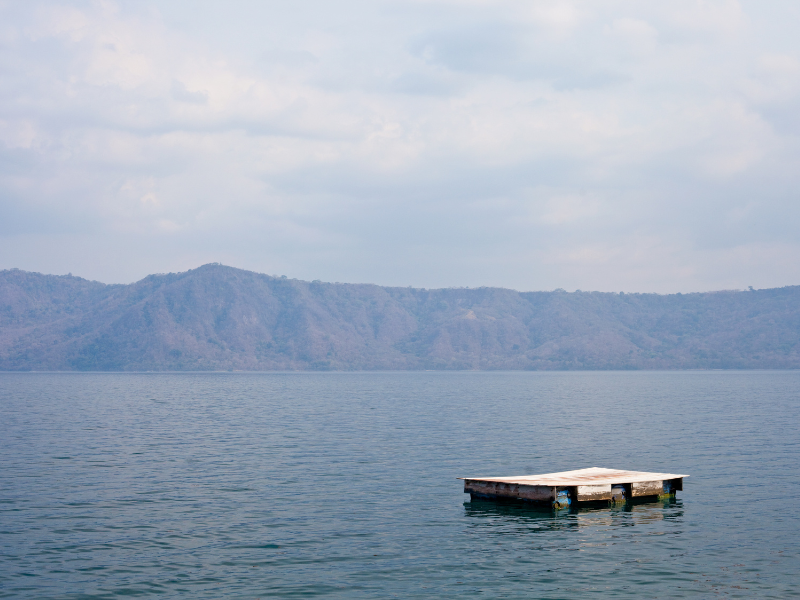
#9. Know that You’ll Have Access to Health Care
If you find yourself needing medical attention in Nicaragua, don’t freak out!
The universal healthcare for Nicaraguan citizens applies to travelers, too. This means free care at decentralized clinics and public hospitals.
In cities like Leon, Managua, Granada, San Juan del Sur, and surrounding towns, you’ll likely have more than one medical facility to choose from. There are even public hospitals on the island of Ometepe!
Nicaragua has 32 hospitals total. Private hospitals are aplenty as well, and offer specializations, though this care comes with a bill.
In my experience, at a private laboratory in Rivas, I paid a fraction of what I’d pay for the same blood tests in the US. I’ve also had two friends receive care at public hospitals without any issues. Note: Medications are not free.
Another thing to note is that you can buy antibiotics, as well as many other medications (that would usually require a prescription) without a prescription, at any pharmacy. The pharmacies in Nicaragua have an arsenal of vitamins and natural herbs and remedies, too.
Important note: You cannot purchase an at-home COVID-19 test anywhere. If necessary, you will have to travel to Managua to purchase a PCR or Rapid Antigen test.
#10. Stay Away from Illegal Drugs & Activities
This should go without saying, but it’s wise to stay away from illegal drugs and other illicit substances and activities. Whatever it is, it’s not worth it.
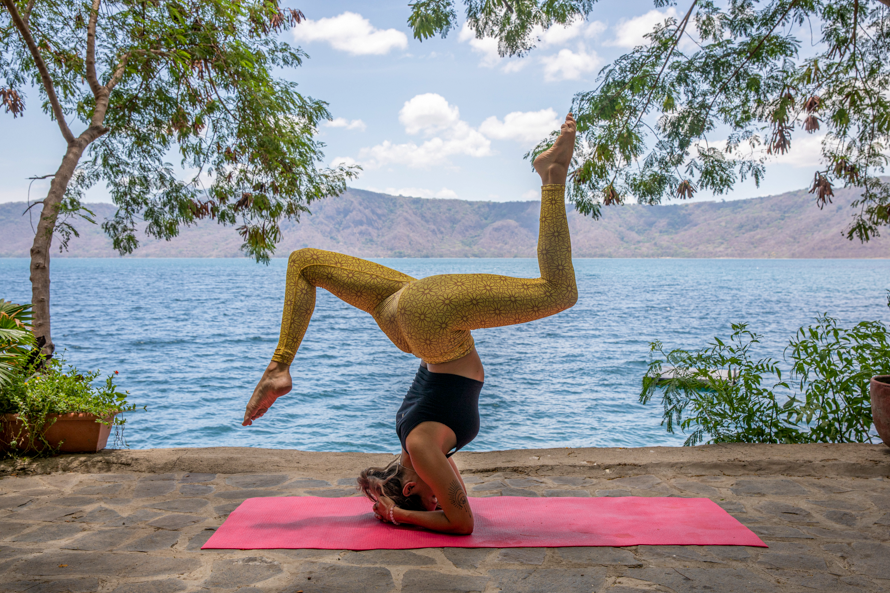
Is Solo Female Travel in Nicaragua Safe?
Is Nicaragua safe for solo female travelers? In short, the answer is yes. Solo female travel In Nicaragua is safe…
Many people think I’m crazy for traveling here alone. However, I’ve met tons of other solo female travelers in Nicaragua who get along just fine.
Here are some of my top tips for solo female travel in Nicaragua.

Nicaragua Safety Tips for Solo Female Travelers
#1. Take Precautions
Although I’ve never had to use them, I travel with pepper spray (you CAN fly with this pepper spray, it’s TSA-approved) and a taser flashlight; these are comforts I prefer to have. Traveling alone as a female anywhere is more risky than traveling alone as a man.
I will add, Nicaragua is culturally conservative, so covering up is a good idea. In addition to respecting local culture, not showing too much skin is a good way to keep yourself from experiencing unwanted attention or encounters.
#2. Dress Conservatively
Long, loose pants and light colored shirts will keep you cool in the heat, as well as keep you under the radar. Of course, this is merely a suggestion, but it stems from my own personal experience.
#3. Use Your Intuition
As women, intuition is one of our many superpowers. If you don’t have a strong connection to yours, I suggest uncovering it before traveling solo.
I know myself to be a good judge of character, I also sense the energies of those around me. If I’m choosing a seat on a bus, I don’t sit in close proximity to someone who gives me an icky feeling. Duh.
#4. Keep to Yourself
For my safety, I make a point to avoid eye contact with men, and I don’t carry on conversations with anyone who wants to know details about my travel plans. As a warm and friendly person, sometimes this is out of my nature, but it’s for the best.
Nicaragua is a Destination for Experienced Travelers
Nicaragua is best for those with traveling experience. If you’ve never left North America, for example, I recommend starting in a Central American country like Belize or Costa Rica. In general, there are more English-speakers and better infrastructure. Experience is invaluable.
For example, familiarity with navigating public transportation can save you from ending up in the middle of nowhere at night, with no reception. (Side note: It’s best not to travel at night, anywhere in Latin America.) Visit Nicaragua after you have a few more touristy countries under your belt. And definitely have some basic Spanish speaking skills!
Ultimately, the less risk you take, the less chance of a bad experience.
In an effort to enjoy your travels, here are some tips and knowledge of best practices to keep you and your belongings safe. You don’t have to learn the hard way!
Travel Insurance for Nicaragua Travel
Whenever you travel overseas, you should take out a travel insurance policy – but especially when traveling to more intrepid destinations like Nicaragua. Travel insurance covers you for travel inconveniences (like lost luggage and travel delays) as well as serious health and safety incidents where you may need to pay overseas medical costs or require emergency services or medical evacuation.
Note: Just because you may have access to decent, cheap – or even free – healthcare abroad does not mean that you shouldn’t buy travel insurance. If a serious incident occurs, where you require high-quality care and/or a medical evacuation back to your home country, you will be glad that your travel insurance policy has your back.
If you’re traveling to Nicaragua soon, then click here to take out a travel insurance policy.
MORE NICARAGUA TRAVEL INSPIRATION
Nicaragua Travel Safety FAQs
Despite the alarming statistics and preconceived notions you may have about safety in Nicaragua, it is usually very safe for tourists in Nicaragua. There are many ways that travelers can decrease their exposure to safety risks, such as: using common sense, not traveling outside of daylight hours, keeping a watchful eye on their belongings and surroundings, bringing a personal first-aid kit, dressing conservatively, not calling attention to themselves (with disrespectful behavior or flashy items, for example), following the local laws, and more. This article answers the question “Is traveling to Nicaragua safe?” in depth, while providing essential safety tips and information for all types of travelers – including solo female travelers.
Popular tourists areas in Nicaragua are generally the safest parts of the country to visit. The safest parts of Nicaragua include Granada, Laguna de Apoyo, Ometepe Island, the Corn Islands, and more.
September and October are the rainiest months in Nicaragua. Any time between November through August is a great time to visit Nicaragua.
Is it Safe to Travel to Nicaragua?
So, is traveling to Nicaragua safe? Well, if you take to heart all of the tips above and decide that traveling to Nicaragua is right for you, yes!
Commit to your safety, exercise caution, and do your own research, always.
Traveling to developing countries like Nicaragua presents experiences that broaden our perspectives of life. Sometimes it takes travel to uncover desire for a simpler way of life. A way of life that comes with a different set of risks and challenges than those of the “modern” world.
I hope this has brought you closer to feeling confident in making the best decision for you!
Did you know…
When you book travel or purchase something through our links, we receive a small commission, at no extra cost to you? Your support enables Maddy’s Avenue to keep producing helpful travel content. Thank you!
Have any questions about Nicaragua safety? Or traveling to Nicaragua in general? Leave your thoughts below, we read and reply to every comment.
*Of course, whether you travel to Nicaragua or not is up to you. This blog post shares only personal experience. No one is liable for any personal risk that you take on, except for yourself.
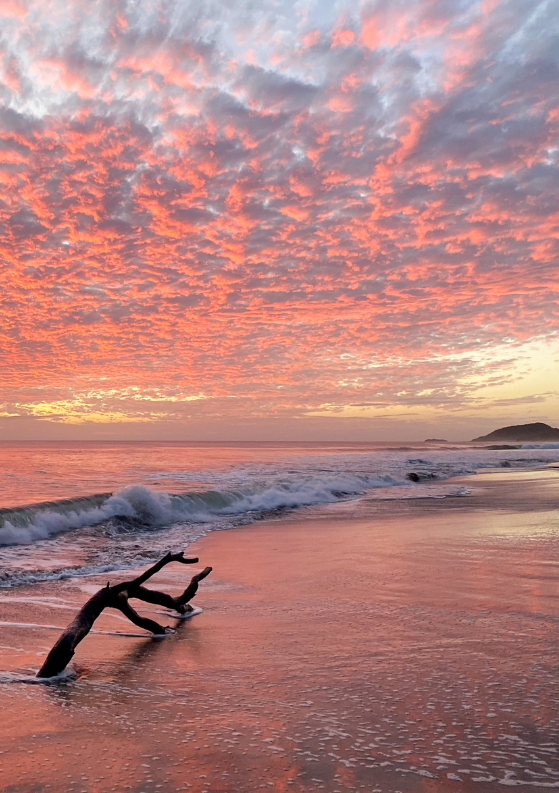
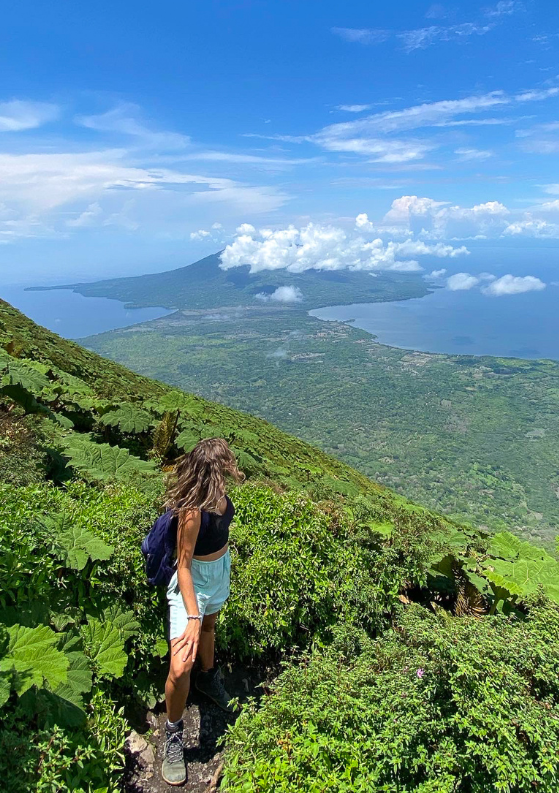
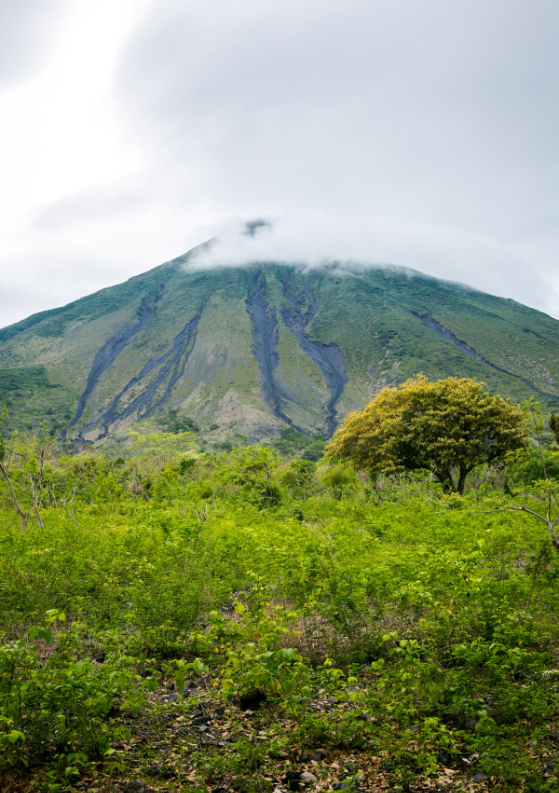
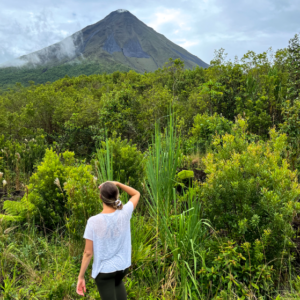
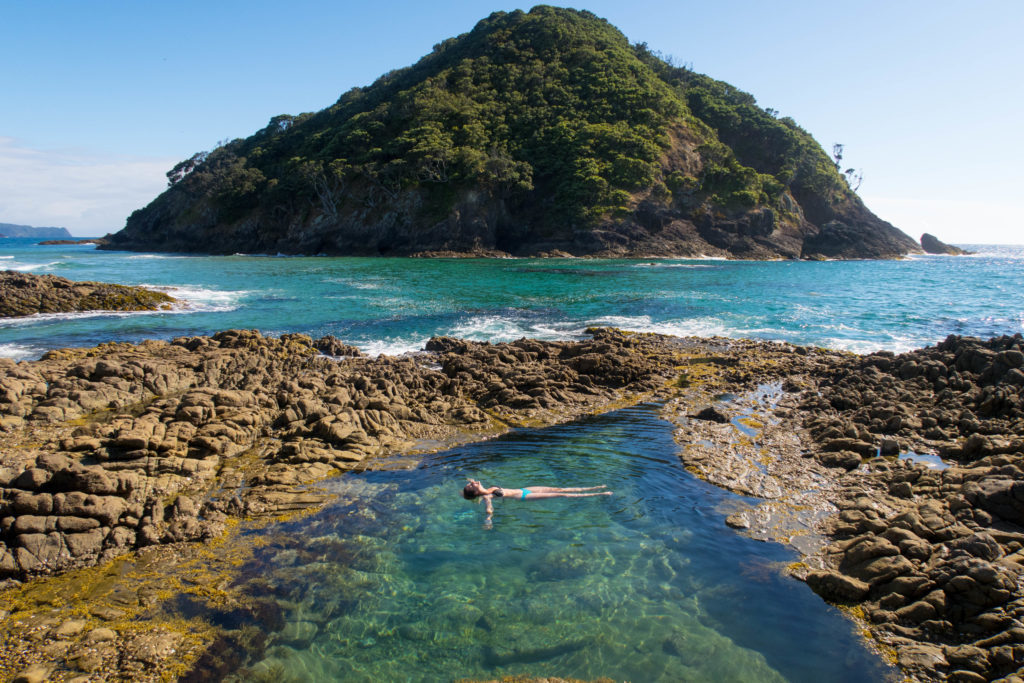
Leave a Reply